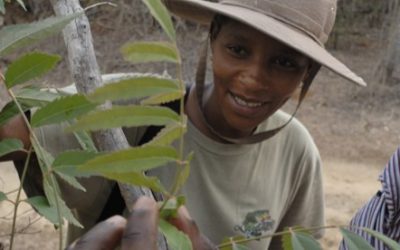Our experience in building capacity in natural resource management in Africa has shown that managers achieve better impacts on biodiversity conservation from well-designed projects backed up by clear frameworks to monitor progress towards realisation of goals.
That’s why we organised a master class in project design for natural resource managers implementing projects in the Eastern Afromontane Biodiversity Hotspot that are funded by the Critical Ecosystem Partnership Fund (CEPF). The course ran from 29 February to 4 March 2016 in Kenya and our aim was to ensure greater conservation impacts for CEPF-funded projects across the hotspot.
We trained six managers – from Ethiopia, Malawi, Rwanda, Tanzania, Zambia and Zimbabwe – in outcome mapping as an effective way of thinking through their projects, the impacts they wanted to achieve and how they would do it. The managers also prepared monitoring plans, and set baselines and indicators to measure progress for conservation projects they are managing in their home country.
Guest speakers from the Kenya Wildlife Service and the Kenya Private Sector Alliance presented case studies and shared their experiences in managing conservation projects. This added much value to the skills learned.
Feedback to the course was positive. Togarasei Fakarayi from BirdLife Zimbabwe described the training as “informative and applicable” and said it would enable him to make “meaningful changes” to his project. Pendo Niyukuli from Save Tanzania Forests summed it up, saying “It was brilliant!”.
Maaike Manten, the CEPF’s Regional Implementation Team Manager said that TBA training was making an impact “Managers are now incorporating what they have learnt into their work. Good job TBA!”.
The six managers now join the Eastern Afromontane Conservation Network of managers who are committed to raise the impact of biodiversity conservation in the hotspot. The network is managed by TBA.
The training forms part of a series of capacity building activities implemented by the TBA under the CEPF-funded project titled ‘Systematic Evaluation of CEPF and Capacity Development of CEPF Grantees’, and will be facilitated in conjunction with the CEPF Regional Implementation Team.




